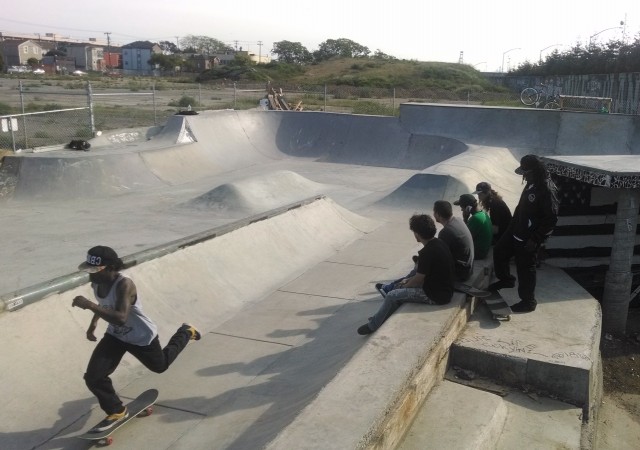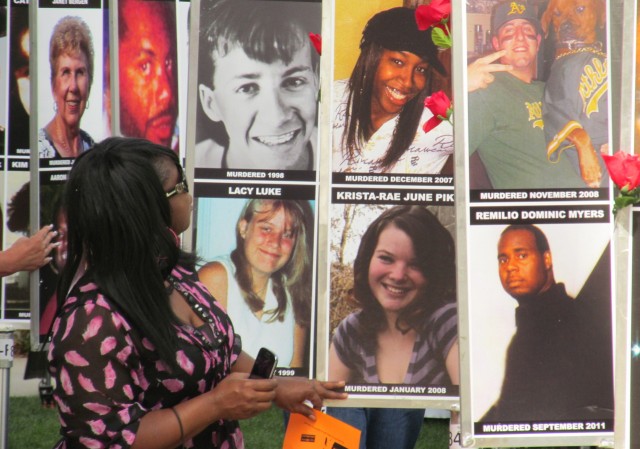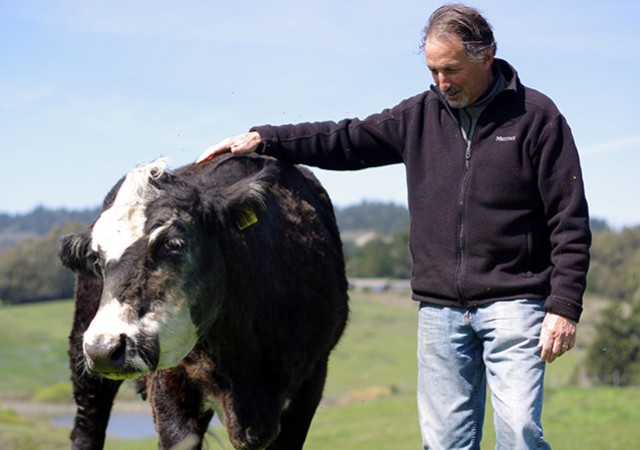If you bike around Alamo Square, stroll through Chinatown, hit tennis balls in Hayes Valley or enjoy a car-less commute, you already know what a new report by Smart Growth America confirms: The Bay Area’s density correlates with better health indicators, more economic mobility and fewer transportation costs. (Jeremy Raff/KQED)

A group of skaters built a skate park where Ninth Street dead-ends into the I-880 freeway in West Oakland. The area used to be blighted by trash dumping and other dangerous activity. The skaters built the park without the permission of the city and without documentation, such as a formal lease or insurance. Now Oakland says skateboarders must stop using the skate park immediately if the park is to have any chance of gaining legal status in the future. (Andrew Stelzer/KQED)

Victims and families from across the state celebrated National Crime Victims' Rights Week with a march in Sacramento on Tuesday, April 8. Gov. Jerry Brown also attended the event, giving a speech in which he avoided "tough on crime" rhetoric. New research out of UC Berkeley's Warren Institute suggests that current public safety policy is failing to help California's most frequent crime victims - low-income African-American and Latino youths. Many victims in those demographic groups are repeatedly targeted, but do not access recovery services. (Kathryn Hunts/KQED)


